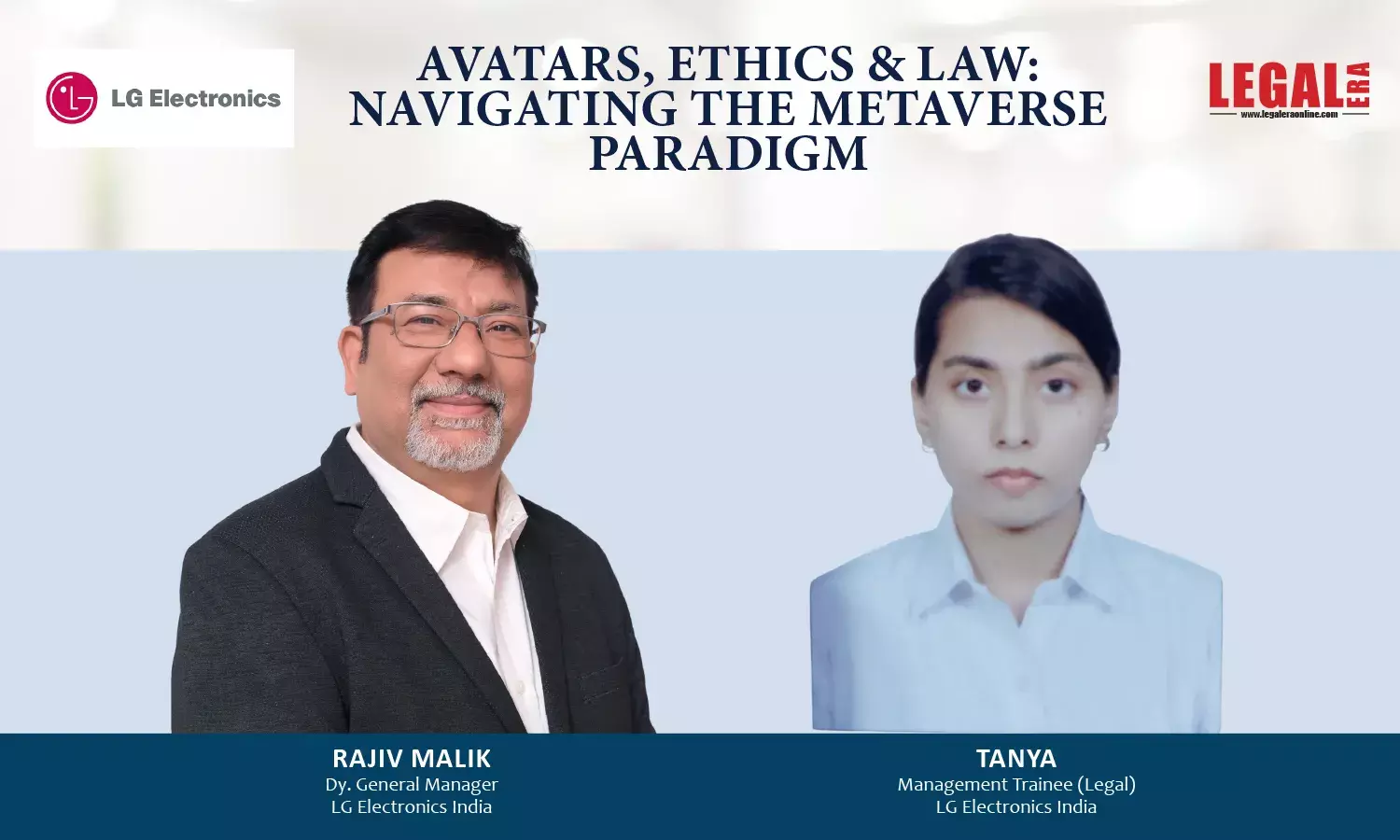A Stay Order Granted In Any Proceedings Would Not Automatically Stand Vacated On The Expiry Of A Particular Period Until And Unless An Application To That Effect Was Filed By The Other Side And Was Decided Following The Principles Of Natural Justice By A Speaking Order

A Stay Order Granted In Any Proceedings Would Not Automatically Stand Vacated On The Expiry Of A Particular Period Until And Unless An Application To That Effect Was Filed By The Other Side And Was Decided Following The Principles Of Natural Justice By A Speaking Order INTRODUCTION: The Apex Court in a decision in High Court Bar Association, Allahabad Vs State of U.P. & Ors.1, held...
A Stay Order Granted In Any Proceedings Would Not Automatically Stand Vacated On The Expiry Of A Particular Period Until And Unless An Application To That Effect Was Filed By The Other Side And Was Decided Following The Principles Of Natural Justice By A Speaking Order
INTRODUCTION:
The Apex Court in a decision in High Court Bar Association, Allahabad Vs State of U.P. & Ors.1, held that it would be expedient in the interest of justice to provide that a reasoned stay order once granted in any civil or criminal proceedings, if not specified to be time bound, would remain in operation till the decision of the main matter or until and unless an application was moved for its vacation and a speaking order was passed adhering to the principles of natural justice either extending, modifying, varying or vacating the same.
FACTS:
By an order dated 1st December 2023, a three Judge Bench of the Apex Court expressed a view that a decision of the Apex Court in the case of Asian Resurfacing of Road Agency Private Limited and Anr. vs. Central Bureau of Investigation2 required reconsideration by a larger Bench.
In Asian Resurfacing (supra), the Apex Court inter alia dealt with the scope of interference by the High Court with an order of framing charges passed by the Special Judge under the provisions of the Prevention of Corruption Act, 1988 (“the PC Act”). The Apex Court observing that a High Court had the jurisdiction in appropriate cases to consider a challenge to an order of framing charges and that a High Court had the jurisdiction to grant a stay of the trial proceedings, also proceeded to consider in which cases a stay of the proceedings ought to be granted.
The Apex Court in Asian Resurfacing (supra) inter alia observed that “(……) 31. Wherever stay is granted, a speaking order must be passed showing that the case was of exceptional nature and delay on account of stay will not prejudice the interest of speedy trial in a corruption case. Once stay is granted, proceedings should not be adjourned, and concluded within two-three months. (……)”.
In the present case, the larger bench of the Supreme Court was called upon to decide the correctness of the observation made in paragraph nos. 36 and 37 in Asian Resurfacing (supra) which reads as follows:
“36. (……) we consider it appropriate to direct that in all pending cases where stay against proceedings of a civil or criminal trial is operating, the same will come to an end on expiry of six months from today unless in an exceptional case by a speaking order such stay is extended. In cases where stay is granted in future, the same will end on expiry of six months from the date of such order unless similar extension is granted by a speaking order. The speaking order must show that the case was of such exceptional nature that continuing the stay was more important than having the trial finalised. (……)
37. (……) Even where such challenge is entertained and stay is granted, the matter must be decided on day-to-day basis so that stay does not operate for an unduly long period. Though no mandatory time-limit may be fixed, the decision may not exceed two-three months normally. If it remains pending longer, duration of stay should not exceed six months, unless extension is granted by a specific speaking order, as already indicated. (……)”.
In the present matter, the Apex Court inter alia observed that the principle laid down in Asian Resurfacing (supra) to the effect that stay shall automatically stand vacated (which would mean an automatic vacation of stay without application of judicial mind to whether the stay should or should not be extended further) was liable to result in a serious miscarriage of justice.
ISSUE FOR CONSIDERATION:
The issues for consideration before the Apex Court were as follows:
(i) Whether the Apex Court, in the exercise of its jurisdiction under Article 142 of the Constitution of India, can order automatic vacation of all interim orders of the High Courts of staying proceedings of Civil and Criminal cases on the expiry of a certain period?
(ii) Whether the Apex Court, in the exercise of its jurisdiction under Article 142 of the Constitution of India, can direct the High Courts to decide pending cases in which interim orders of stay of proceedings has been granted on a day-to-day basis and within a fixed period?
SUBMISSIONS ON BEHALF OF THE APPELLANT:
It was submitted on behalf of the Appellant as follows:
(a) Automatic vacation of an interim order was in the nature of judicial legislation. The Apex Court could not engage in judicial legislation;
(b) Article 226 was a part of the basic structure of the Constitution of India, and it could neither be shut out nor whittled down by the exercise of powers under Articles 141 and 142 of the Constitution of India;
(c) An order granting interim relief could not be passed without an application of judicial mind. Application of mind was a pre- requisite of judicial decision making. The absence of application of mind would render a decision arbitrary. Similarly, an order vacating interim relief could not be passed without the application of judicial mind;
(d) If an interim order was to be passed, it should be initially for a short period so that there is an effective opportunity for the respondent to contest the same;
(e) No directions could have been issued in the exercise of the jurisdiction of this Court under Article 142 of the Constitution of India;
(f) Even under Article 226(3) of the Constitution, an interim order cannot be automatically vacated unless a specific application is made for vacating the interim order;
(g) A provision of automatic vacation of the Appellate Tribunal's stay order was incorporated in Section 254 (2A) of the Income Tax Act, 1961 (“the IT Act”). It provided that if an appeal preferred before the Appellate Tribunal was not disposed of within 365 days, the stay shall stand vacated even if the delay in disposing of the appeal was not attributable to the assessee. The Apex Court struck down the provision in the case of Deputy Commissioner of Income Tax and Anr. vs. Pepsi Foods Limited3 on the ground that it was manifestly arbitrary;
(h) The automatic vacation of interim relief was unjust, unfair and unreasonable.
SUBMISSIONS ON BEHALF OF THE RESPONDENTS:
In an unusual turn of events, it was submitted on behalf of the Respondents as follows:
(a) The Constitution Bench in the case of Raza Buland Sugar Co. Ltd. v. Municipal Board, Rampur4, held that laws of procedure were grounded on principles of natural justice, which required that no decision could be reached behind the back of a person and in his absence;
(b) If the condition imposed by a provision of law to do a certain thing within a time frame was upon the institution and the consequences of that institution failing to comply with the condition were to fall upon someone who had no control over the institution, the provision of law would have to be construed as directory;
(c) An interim relief order is always granted after considering three factors: prima facie case, the balance of convenience and irreparable injury to the aggrieved party. Once a finding was recorded regarding the entitlement of the appellant/applicant to get an order of stay, an order does not become automatically bad on the ground that it had lived for six months;
(d) That recourse to the order of grant of interim relief is taken, as the conclusion of hearing on merits would likely take some time. This object was not considered in Asian Resurfacing (supra). The passing of an interim order of stay was a judicial act and therefore, such an order must be vacated only by a judicial act.
JUDGMENT:
The Apex Court observed that an order of interim relief was usually granted in the aid of the final relief sought in the case. An occasion for passing an order of stay of the proceedings normally arises when a High Court is dealing with a challenge to an interim or interlocutory order passed during the pendency of the main case before a trial or appellate Court. The High Court could grant relief of the stay of hearing of the main proceedings on being satisfied that a prima facie case was made out and that the failure to stay the proceedings before the concerned Court in all probability could render the remedy adopted infructuous.
The Apex Court observed that though interim orders of stay of proceedings could not be routinely passed as a matter of course, it could not be said that such orders could be passed only in exceptional cases.
The Apex Court further observed that elementary principles of natural justice mandated that an order of vacating interim relief or modification of the interim relief could be passed only after hearing all the affected parties. An order of vacating interim relief passed without hearing the beneficiary of the order was against the basic tenets of justice. Application of mind was an essential part of any decision making process. Therefore, without application of mind, an order of interim stay could not be vacated only on the ground of lapse of time when the litigant was not responsible for the delay.
It was observed that an interim order lawfully passed by a Court after hearing all contesting parties could not be rendered illegal only due to the long passage of time.
The Apex Court observed that the maxim “actus curiae neminem gravabit” would apply, if an interim order was automatically vacated without any fault on the part of the litigant only because the High Court cannot hear the main case which means that “no litigant should be allowed to suffer due to the fault of the Court”. If that happens, it was the bounden duty of the Court to rectify its mistake.
The Apex Court relied upon its earlier decision in Pepsi Foods Limited (supra), wherein it was observed that a provision automatically vacating a stay was manifestly arbitrary and violative of Article 14 of the Constitution of India.
The Apex Court further observed that the power of the High Court under Article 227 of the Constitution to have judicial superintendence over all the Courts within its jurisdiction would include the power to stay the proceedings before such Courts. By a blanket direction in the exercise of power under Article 142 of the Constitution of India, the Apex Court could not interfere with the jurisdiction conferred on the High Court of granting interim relief by limiting its jurisdiction to pass interim orders valid only for six months at a time. The Apex Court observed that by putting such constraints on the power of the High Court would amount to making a dent on the jurisdiction of the High Courts under Article 226 of the Constitution, which was an essential feature that formed part of the basic structure of the Constitution.
In view of the aforesaid, the Apex Court held that there could not be an automatic vacation of stay granted by the High Court. It was further held that such blanket directions could not be issued in the exercise of the jurisdiction under Article 142 of the Constitution of India.
The content of this article is intended to provide a general guide to the subject matter. Specialist advice should be sought about your specific circumstances.
2. (2018) 16 SCC 299
3. (2021) 7 SCC 413
4. AIR 1965 SC 895






